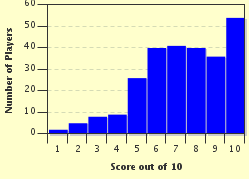Quiz Answer Key and Fun Facts
1. During the last half of the 8th century AD, the King of Mercia ordered the construction of a massive earthwork which is roughly 150 miles long and, in places, follows the present-day border between England and Wales. Can you name this king?
2. A monument, known as The Rufus Stone, stands in the northern section of The New Forest, in the south of England. It commemorates the death of an English king in the year 1100 AD, who was shot when he was hunting.
Who was this king?
3. On the 29th December 1170 AD, Thomas Becket, the Archbishop of Canterbury, was brutally slain in his cathedral by four knights who believed that their king wanted to be rid of this man.
Which king was this?
4. Just over 20 miles west of central London, on the banks of the River Thames, is a meadow called Runnymede. It was here, in 1215 AD, that an English king put his seal to a charter which is usually referred to by its Latin name of Magna Carta. Who was this king?
5. In the August of 1588 an army of 4,000 English troops was mustered at Tilbury, in Essex, ready to repel a Spanish invasion.
Do you know what the missing word is in the following extract from the very-well-known speech which Queen Elizabeth the First made to these troops, to encourage them?
'I know I have the body but of a weak and feeble woman; but I have the heart and ______ of a king and of a king of England too, and think foul scorn that Parma or Spain, or any prince of Europe, should dare to invade the borders of my realm.'
6. The Royal Oak is the name given to a tree which stands in Bishops' Wood, near Boscobel House in Staffordshire. It is the 'daughter tree' of the one in which a king of England once hid, to escape from the Roundhead soldiers, after his defeat at the Battle of Worcester in 1651.
Who was this king?
7. In July of 1717 the King wanted a concert on the River Thames. George Frederic Handel composed the very-famous 'Water Music' for this event.
For which king was this music composed?
8. During the reign of which English monarch did the following events occur:-
-Britain defeated France after The Seven Years' War:
-Britain lost the Thirteen Colonies in the American War of Independence:
-Napoleon was defeated at the Battle of Waterloo?
9. 'We are not amused' is a very-well-known quotation. Do you know which of England's monarchs is supposed to have said it?
10. In 1936 a king of England abdicated the throne thus becoming the first English monarch to do so of his own free will.
Who was this king?
Source: Author
Jomarion
This quiz was reviewed by FunTrivia editor
bloomsby before going online.
Any errors found in FunTrivia content are routinely corrected through our feedback system.

